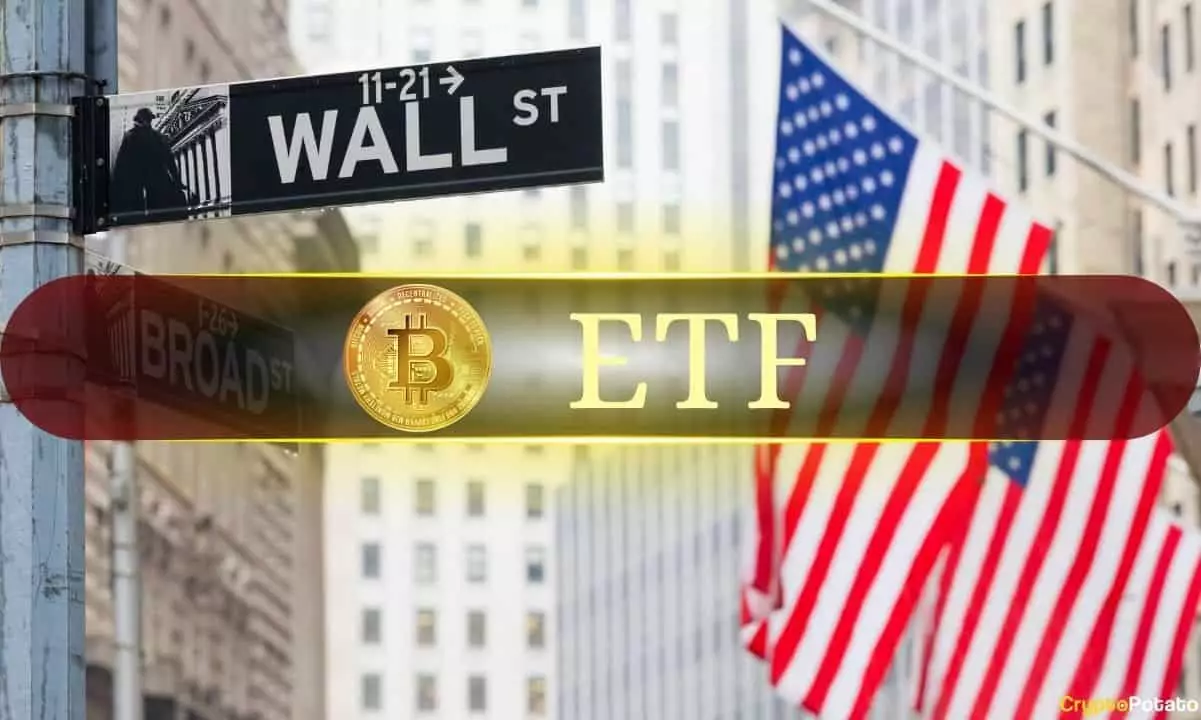The cryptocurrency market is often depicted as a realm of fluctuating fortunes, driven by investors’ sentiments and regulatory landscapes. Recently, however, a stark phenomenon has emerged surrounding Bitcoin exchange-traded funds (ETFs) in the U.S. The once-thriving demand for these financial products has plummeted, particularly evident in February 2025, which has turned into a month marked by significant withdrawals and a lack of enthusiasm from investors.
In January 2025, the introduction of eleven spot Bitcoin ETFs sparked considerable excitement among investors. This buzz was underscored by a flurry of fund transfers from the widely known Grayscale Trust to various newly launched ETFs, including those managed by financial powerhouses such as BlackRock and Fidelity. In the weeks following their launch, it appeared that investors were eager to embrace these products, pouring fresh capital into them.
However, as the summer months approached, momentum slowed drastically. The crypto market typically experiences periods of volatility; yet, the lack of action over the summer transitioned into an unexpected downturn in investor confidence. A crucial turning point occurred after the U.S. elections, where the marketplace briefly hoped for a more accommodating regulatory environment. Initial optimism led to increased inflows into Bitcoin ETFs. Still, that newfound enthusiasm has faded notably, as shifting political tides and President Trump’s controversial leadership decisions began to weigh heavily on investor sentiment.
February 2025 has shattered the excitement once surrounding Bitcoin ETFs, transitioning instead into a month defined by net outflows that encapsulate the investor’s waning interest. Data reveals that Bitcoin ETFs faced severe withdrawal rates, with a staggering $1.1 billion pulled from these funds since February 6. In stark contrast, February had historically been a promising month for Bitcoin price performance, yet this year has seen only a handful of days—merely four—to boast any net inflows.
Specifically, on February 20, data indicated the largest recorded outflow, with $364.8 million evaporating from the funds. Even the dominant IBIT ETF was not immune, facing a remarkable withdrawal of $112 million. This exodus paints a dire picture for Bitcoin ETFs; February now stands as the worst month since their introduction over a year ago in terms of net outflows.
The Contrast with Ethereum ETFs
While Bitcoin ETFs face unprecedented challenges, Ethereum ETFs portray a slightly more favorable narrative, although not without their own complications. Recent trends indicated a spurt of optimism for ETH funds, marked by four straight days of net inflows prior to a downturn that culminated in withdrawals worth $13.1 million and $8.9 million on consecutive Thursdays. Despite these withdrawals occurring in a month typically associated with growth, Ethereum ETFs have experienced a relatively ‘stable’ February, with only four days reflecting significant losses.
Nevertheless, the post-February 4 enthusiasm waned considerably for Ethereum as well. Investors had initially directed a noteworthy $307.8 million into ETH ETFs, but subsequent inflows have dwindled to merely low double-digit figures. This trend demonstrates that while Ethereum may be faring better in comparison to Bitcoin, it undeniably reflects a broader, chilling sentiment in the cryptocurrency market.
The evolving landscape surrounding Bitcoin and Ethereum ETFs highlights the complex interplay between regulatory actions, political climates, and investor behavior. As confidence in Bitcoin dwindles, and with it the associated financial instruments, a pressing question arises: what does the future hold for cryptocurrency investments in the U.S.?
In the immediate term, market analysts and investors alike must scrupulously evaluate the implications of these trends. The pronounced shift in sentiment may not only affect Bitcoin and Ethereum ETFs but also reverberate across the wider cryptocurrency sector. While enthusiasm for crypto assets ebbs and flows, the pressing issues of governance, investor education, and market stability continue to emerge as pivotal topics in ensuring a sustainable cryptocurrency market moving forward. Thus, both potential and caution will be crucial for stakeholders navigating this uncertain terrain.
















Leave a Reply